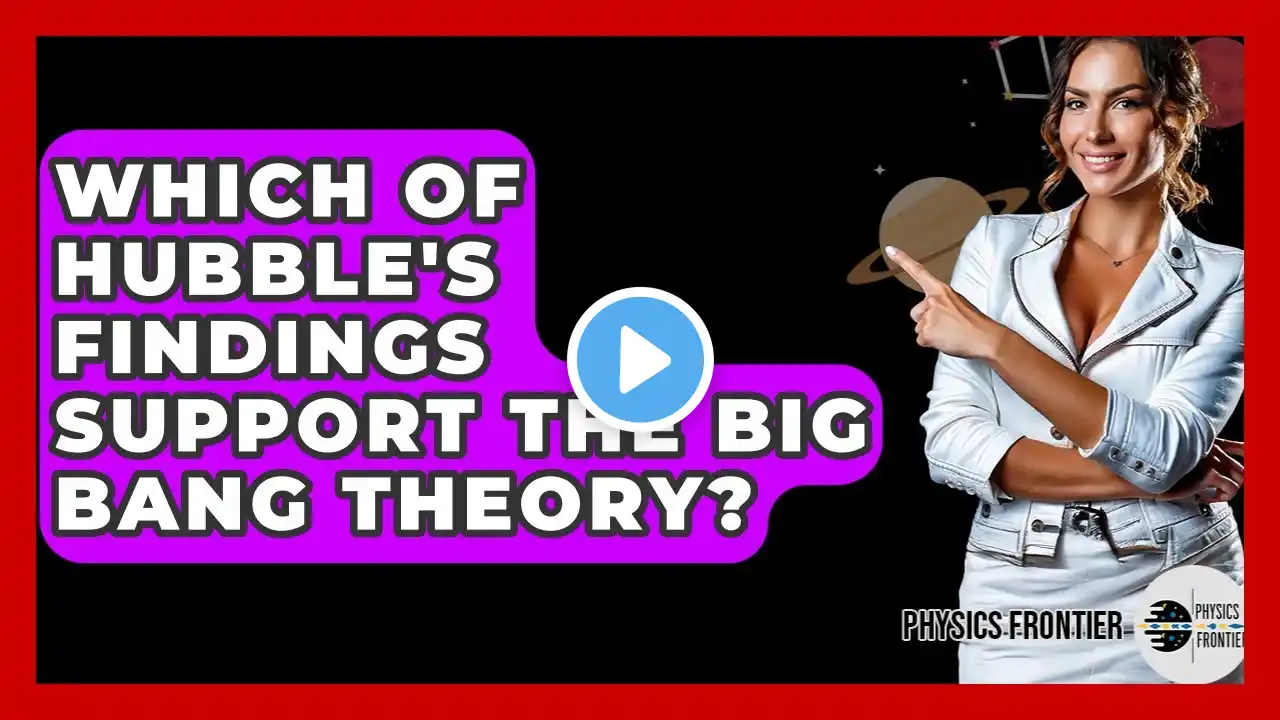
Which Of Hubble's Findings Support The Big Bang Theory? - Physics Frontier
Which Of Hubble's Findings Support The Big Bang Theory? In this informative video, we will discuss the remarkable contributions of Edwin Hubble to our understanding of the universe and how his findings support the Big Bang Theory. We will explore Hubble's observations of galaxies moving away from us and the implications of redshift, a phenomenon that has helped shape modern cosmology. Additionally, we'll explain Hubble's Law and its significance in demonstrating the expanding nature of the universe. We will also touch on the cosmic microwave background radiation, which serves as a remnant of the early universe, and how Hubble's work laid the foundation for future discoveries. Furthermore, we will examine the connection between Hubble's findings and the theories proposed by Georges Lemaitre, illustrating how these observations provide evidence for the universe's origins. Lastly, we will highlight recent advancements from NASA's Hubble and James Webb Space Telescopes that continue to affirm Hubble's groundbreaking work. Join us for this engaging exploration of Hubble's legacy and its impact on our comprehension of the cosmos. Don't forget to subscribe to our channel for more fascinating discussions on physics and astronomy! ⬇️ Subscribe to our channel for more valuable insights. 🔗Subscribe: https://www.youtube.com/@Phys1csFront... #Hubble #BigBangTheory #CosmicMicrowaveBackground #Astrophysics #Redshift #Galaxies #UniverseExpansion #HubblesLaw #EdwinHubble #SpaceExploration #JamesWebbTelescope #NASA #Astronomy #Cosmology #Physics About Us: Welcome to Physics Frontier, your gateway to the captivating world of physics and astronomy! Dive deep with us as we explore the mysteries of the universe, from the birth of stars in nebulae to the enigmatic nature of black holes. Our channel covers a rich tapestry of topics, including celestial mechanics, cosmology, and the latest discoveries from NASA and the Leibniz-Institute.